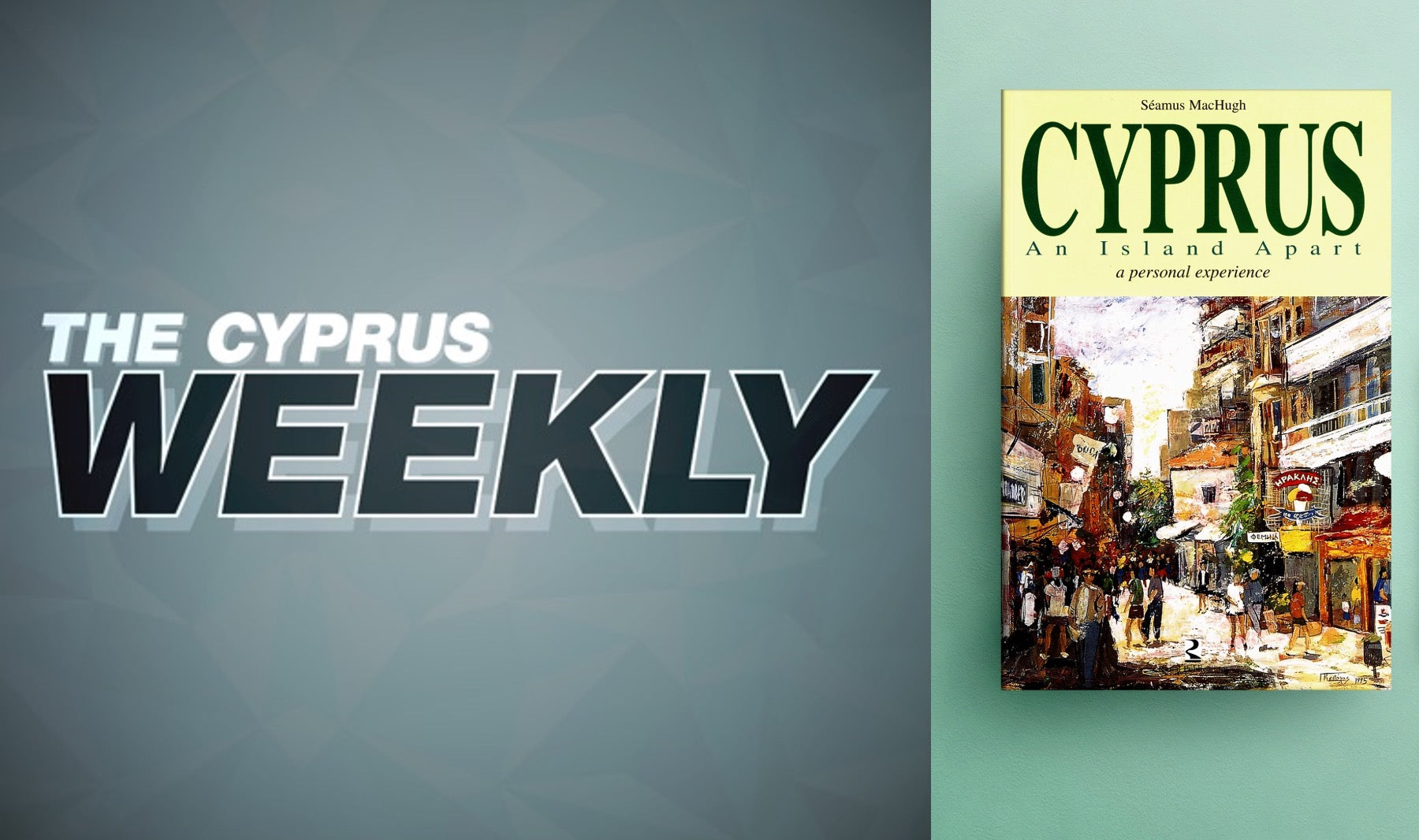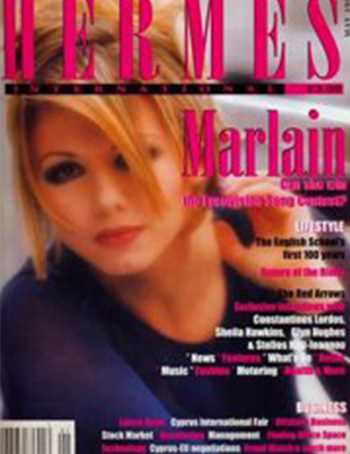
CYPRUS WEEKLY
A Book Apart
This is one of the most enjoyable books on Cyprus to appear in a very long time...
This book was written, at least partly, in response to a review in the Cyprus Weekly (March 1995) of a pervious book by the author. In the concluding paragraph of his review Half Way Round The World in 180 Days, the reviewer wrote: ‘It's a pity that the book was written before Mr. MacHugh arrived in Cyprus, but I am sure that his stay on the island will provide more than enough material for a second volume of memoirs.' I took that innocent remark as a kind of challenge.
So begins the Introduction to the latest book on to arrive on my desk. Reader, I was that reviewer.
It was thus with some trepidation that I began Seamus MacHugh's latest book, Cyprus An Island Apart. After all, who knows what sort of literary Frankenstein monster I might have created with an ‘innocent remark'? I need not have worried.
Like his pervious, most enjoyable book, MacHugh's new one is everything it aims to be - "a mix of historym culture and personal experience told in a lighter vein" as he describes it in the introduction, "to offer visitors to the island a pleasant read, in the hope also of making their visit more enjoyable and rewarding."
In fact, Seamus MacHugh is being modest. This is one of the most enjoyable books on Cyprus to appear in a very long time, particularly because, faithful to its subtitle "a personal experience", it goes where the usual guide books and more scholarly academic tomes fear to tread.
As he showed in Half Way Round The World in 180 Days, the author is an extremely observant fellow and one who brings both eloquence and humour to his descriptions of the people, places, and habits he comes across.
While he suggests, quite lightly, that the book will be enjoyed by some of the two million visitors who come to the island every year, it is also precisely the sort of collection that will delight many permanent residents, especially non-Cypriots, who will find much to identify with, having gone through many of the same experiences.
Who has not wondered why the Cypriots leave those unsightly bits of iron sticking out of their otherwise beautifully finished houses? Who has not lamented that state of Nicosia 's pavements (where they exist) of the unusual driving habits that one comes across.
It would be wrong, however, to give the impression that this is a book of ex-pat complaints. Far from it. Seamus MacHugh reveals a great deal of affection, respect and understanding for the Cypriots and their country and his own Irish background has given him a keen understanding of the human aspect of what it means to live on a divided island.
As a result, his sympathies are very much with the Greek Cypriots among whom he has lived for the past three years, though this is in no sense a political book. If ever proof were needed of the humanitarian aspect of the results of the Turkish invasion, this book deals with it admirably.
Greek Cypriot readers will be concerned, however, by two things. The first is one of the very rare instances in which MacHugh has, surprisingly, simply got things wrong. He claims that "the government in Nicosia ...has not stopped the interference with people's perfectly legal rights to travel to the North under the restrictions laid down" and states elsewhere that "there is no legal prohibition on Greek Cypriots from crossing to the North. It is simply not done. By anyone."
This is simply not true and if he needs proof. I suggest that he joins one of the many peaceful demonstrations by the people of many of the occupied villages this summer. Their stated aim is to return to their homes but, as he will soon see, they will not be allowed to cross over, by Turkish troops, Turkish Cypriot ‘police' and even UN peacekeepers.
Let him ask George Lanitis, who is referred to in the book (though not by name) to try and go home to Bellapais. Any Greek Cypriot who wishes to travel to his or her home in the occupied north, even if they are willing to sign the papers and pay a fee, will be turned back. Many have tried on many occasions. Quite how this very basic misunderstanding arose in the author's mind is a mystery, but it is a gaffe of huge proportions.
The other aspect of the book that will give concern to people on this side of the demarcation line is simply the fact that MacHugh visited the occupied areas in the first place. This is always a difficulty and one which the publishers of guide books to have agonized over the past quarter of a century.
On the other hand, this is an island which, despite the political and military situation, was and is one country. It is silly to pretend that the north of does not exist. On the other hand, many argue that by writing about the occupied areas, particularly in a book aimed at tourists, any author is encouraging others to go there and is thus supporting the illegal regime in the North. Both arguments have their advocates.
One good thing about Seamus MacHugh's account of his visit to the occupied areas is that he does not use the new Turkish names of any of the places he sees (and he apologises for ‘reluctantly' using the official CTO-sanctioned spellings of places on this side of the line) and there is a lot to be said for including his descriptions of what goes on in the north of the island.
In many ways his picture tallies with ours (there are mentions of the ubiquitous military presence in Kyrenia and the "less salubrious characters" too).
One day, when is reunited, they will have even more value, but at present they may upset those people, who are not as fortunate as the author in having free access to the places where they lived until July 1974.
About one quarter if the book is devoted to the north of the island and for those who have never been there or have not been allowed to travel there, it is possibly even more interesting that the rest. The remainder covers every conceivable aspect of life on the island. MacHugh has done an excellent job on the history of and he is a visitor whose sensibilities to architecture, culture and people have led him to some exceptional and revealing observations.
Despite the misgivings mentioned above, I have no hesitation in recommending Cyprus An Island Apart to anyone who loves this country. It is well-written by an author whose affection for the place is evident throughout, as is the undeniable conviction which ends his final poetic dedication at the end of the book that, for Seamus MacHugh. "it's been good to be here".
A review by John Vickers - CYPRUS WEEKLY



